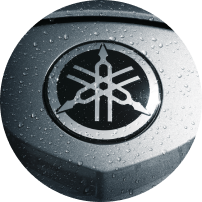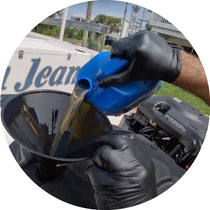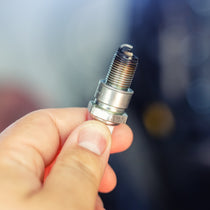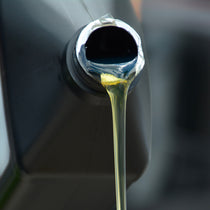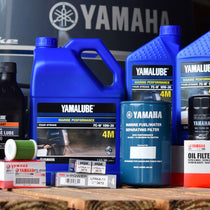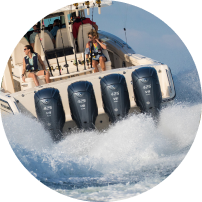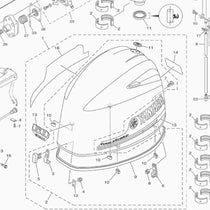

Genuine Yamaha Outboard Oil Change Kits Are Critically Important
Why are Genuine Yamaha oil change kits so important? Well, you’ve heard the expression “choose wisely.” When it comes to choosing an engine oil and filter to protect your Yamaha outboard, this couldn’t more true. Using the correct oil and filter at the recommended intervals is the single most important thing you can do for your Yamaha outboard. For the convenience of our customers, PartsVu has created oil change kits for the most common Yamaha outboards. But first, let's explore the importance of using the proper oil and oil filter.
Can I use automotive engine oils in my Yamaha outboard engine?
No! Your Yamaha outboard is vastly different from your automotive engine; so avoid regular automotive engine oils. Use a motor oil specifically formulated for the rigors of the marine environment, like Yamalube 4M engine oil for four-stroke outboards, and Yamalube 2M engine oil for two-stroke outboards. Let's look at a few reasons why.Outboard engine load
The typical loads placed on your outboard are much heavier than on your automobile, having to overcome a much greater amount of drag to create performance. This means your outboard is working much harder than your automobile’s engine. Yamalube 4M and 2M marine engine oils contain specific anti-wear additives to account for this.Yamaha outboard engine speed
Your Yamaha outboard operates at a much higher RPM than your automobile’s engine. It must rev higher to create higher speeds, rather than just changing gears like your car. That means your outboard may run all day long at 4500-6000 RPM, rather than the 2500 RPM your car reaches highway speeds. That’s tough on your oil, and can literally shear (or split) the molecules in ordinary automotive oil, reducing lubricity. Yamalube 4M and 2M outboard engine oils have special shear-stable polymers to combat this and provide superior lubrication at all times.Yamaha outboard operating temperature
Outboards are cooled using raw water, which is often cool to very cold. On the other hand, saltwater will begin to crystallize if its temperature is raised above 170° F, potentially causing blockage in the cooling passages and leading to engine overheat and possible damage. Because of these two factors, your outboard operates full-time at a temperature much lower than your automobile and requires very different qualities in its lubricating oil. Yamalube marine oils have detergents, dispersants and viscosity index improvers to meet these marine-specific challenges head-on.
Outboard operating environment
Your outboard is constantly near water, sucking in very humid air directly off the water’s surface in order to operate. This humid air also gets inside combustion chambers through open valves when it’s not in use. And in a saltwater environment, that air is even more corrosive. It’s one of the harshest environments imaginable for an engine. Yamalube 4M and 2M marine engine oils formulated with special anti-corrosion agents to combat and prevent the corrosive effects of saltwater. Yamalube outboard engine oils provide specific protection other oils don’t, using a proprietary blend of marine-specific anti-wear additives, shear-stable polymers, corrosion inhibitors, detergents, dispersants and viscosity index improvers. In short, they’re far superior to automotive engine oils in their strength of protection, durability and corrosion resistance.How is Yamalube marine engine oil different?
Yamaha has spent many thousands of hours and resources to ensure that only the best oil specifically suited for the marine environment goes into your engine. PartsVu can confirm that this oil was created for the most grueling conditions an outboard engine can face. Whether it’s extended full-throttle operation, engine-punishing “out of the hole” acceleration, or hours of trolling, genuine Yamalube engine oils can handle the job at hand.
Yamalube oil delivers superior lubrication and anti-rust protection for outboard engines in marine environments and works to guard against ring stick, carbon buildup, and varnish. Yamalube 4 Stroke engine oils have the best anti-foaming formula available, and unlike passenger car oils, they are certified by the National Marine Manufacturers Association.

